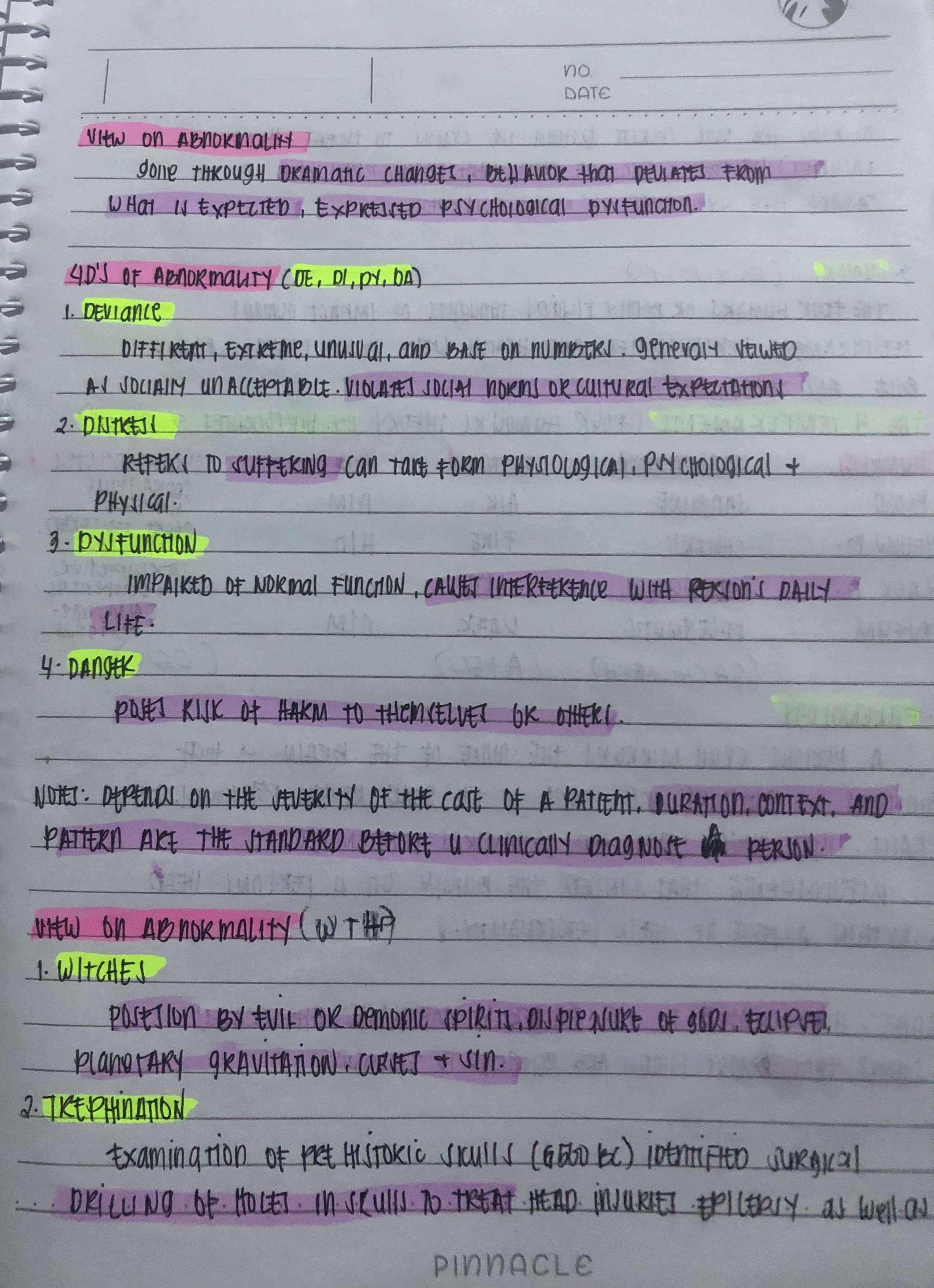What are the different views on abnormality in psychology and how are they defined?

Understand the Problem
The question appears to be related to the concepts of abnormality in psychology, covering definitions such as deviance, distress, dysfunction, and danger, as well as historical views on abnormality, including witchcraft and trepanation.
Answer
Biological, behavioral, cognitive, and psychodynamic models define abnormal psychology. Criteria: deviance, distress, dysfunction, and danger.
The main models of abnormal psychology are biological, behavioral, cognitive, and psychodynamic. Definitions of abnormality include deviance, distress, dysfunction, and danger.
Answer for screen readers
The main models of abnormal psychology are biological, behavioral, cognitive, and psychodynamic. Definitions of abnormality include deviance, distress, dysfunction, and danger.
More Information
Abnormal psychology studies unusual patterns of behavior, emotions, and thoughts, often through multiple perspectives. Each model offers different insights: biological (physical causes), behavioral (learned behaviors), cognitive (thought processes), and psychodynamic (unconscious conflicts).
Tips
Common mistakes include confusing the definitions of distress and dysfunction or not recognizing the importance of combining different models for a comprehensive understanding.
Sources
- Abnormal Behavior Criteria - study.com
- Perspectives on Abnormal Behavior - CliffsNotes - cliffsnotes.com
- Models of Abnormality - en.wikipedia.org
AI-generated content may contain errors. Please verify critical information